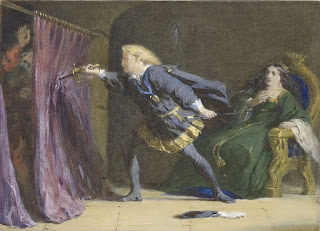Every Man in His Humour – Full Detailed Summary | Act Wise-Narrative
Every Man in His Humour – Full Detailed Narrative
Prologue
The play begins with a direct address to the audience. The prologue explains Ben Jonson’s goals: this is not a play filled with fantastical absurdities or adventures in far-off lands. Instead, it will be realistic, showing contemporary people of Elizabethan London and their “humours”—exaggerated personality traits stemming from the old theory of the four bodily fluids (blood, phlegm, yellow bile, black bile), believed to shape temperament. Jonson promises that through familiar “deeds and language,” audiences will laugh at human follies and recognize their own faults.
Act I – Letters, Introductions, Deceptions
At his London home, Old Knowell, a scholar, speaks with his witty servant Brainworm and asks him to call his son Edward Knowell. Knowell, once a scholar himself, is glad to see Edward educated, but he disapproves of his fascination with poetry and “lighter arts.” Soon, Master Stephen, Knowell’s country nephew, arrives. Foolish and vain, obsessed with fashion and easily deceived, he asks Edward for books about hunting and hawking. Old Knowell scolds Stephen for wasting his time.
A servant then delivers a letter—actually meant for Edward—but Knowell opens it secretly. It is from Wellbred, Edward’s mischievous friend living in the Old Jewry. The tone is informal and louche, inviting Edward to spend time with Wellbred’s rowdy company in the city. Knowell is offended by this lack of respect and worries about his son’s companions. Still, he decides not to restrain Edward harshly, but to try to guide him into being good of his own free will. He sends Brainworm to give Edward the letter but not reveal that he himself opened it.
Brainworm disobeys the last instruction: he admits to Edward that his father read the letter. Edward is amused and looks forward to visiting Wellbred, inviting Stephen along.
Meanwhile, we meet Master Matthew, a pretentious town gallant, at the humble home of Cob, a poor water-carrier. Matthew is seeking Captain Bobadill, a braggart soldier and coward who boards with Cob. Bobadill, having no money, spent the previous night sleeping on Cob’s bench. Cob, irritated and poor, grumbles about Bobadill owing money to his wife Tib.
In Cob’s house, Matthew meets Bobadill and the two instantly bond over bombastic talk of poetry and swordsmanship. Matthew promises never to reveal that Bobadill stayed at this shabby house. To flatter Bobadill further, Matthew reads him poetry (much of which he has plagiarized), and Bobadill boasts he can teach him the true arts of fencing. They leave together for a tavern, setting up one of many comic subplots.
Act II – Jealousy and Disguises
Attention turns to Kitely, a London merchant in the Old Jewry, and his household. He discusses family concerns with his cashier Cash and his brother-in-law Downright, a blunt, honest squire. Kitely is worried about Wellbred (Downright’s brother and Kitely’s brother-in-law through Dame Kitely). He feels Wellbred fills his house with disreputable companions and bawdy behavior, possibly exposing Kitely’s wife (Dame Kitely) and sister (Bridget) to dishonor. Downright is enraged by his brother’s conduct, while Kitely, increasingly paranoid, tries to keep calm.
Just then, Matthew and Bobadill arrive but fail to find Wellbred. They leave, muttering. Kitely broods about cuckoldry, imagining his wife’s betrayal.
Meanwhile, Brainworm hatches new schemes. He disguises himself as a down-at-heel soldier named Fitzsword, planning to mislead Old Knowell as he follows Edward.
In the Moorfields (an open area of London), Edward and Stephen pass by. Stephen, ever foolish, has just lost his purse containing a love-token from his mistress. Brainworm, dressed as the poor soldier, tries to sell Stephen a worthless sword. Despite Edward’s warnings, Stephen buys it eagerly, thinking it noble.
Soon after, Old Knowell arrives, debating whether to control his son more. He reflects on how parents often harm children by meddling too much. Brainworm (still as Fitzsword) begs for money and beer; Knowell lectures him about being a bad gentleman but ironically agrees to employ him—never guessing he is already his own servant.
Act III – Revelries, Tricks, and Tobacco
The act opens at a tavern, where Wellbred entertains his friends, Bobadill and Matthew. Matthew complains about Downright’s insults, and Bobadill brags of military service. Edward arrives with Stephen, and it is revealed that Wellbred himself sent the cheeky letter to Edward. They all laugh about Old Knowell intercepting it.
Stephen boasts about his new sword, only for the group (especially Bobadill) to ridicule it as cheap and disgraceful. Stephen fumes, but Brainworm soon enters and gleefully reveals himself as the one who sold it to Stephen. Edward now realizes Brainworm is secretly watching out for him.
Meanwhile, Kitely continues shady money dealings with Cash (suggesting he too is compromised by greed). Kitely grows frantic, instructing Cash to report immediately if Wellbred or others come to the house.
Back at Kitely’s home, Cob arrives, distressed about his domestic woes, while Cash tries calming him by saying it is just his “humour.” Soon the young gallants arrive—Wellbred, Edward, Stephen, Bobadill, Matthew, and Brainworm. They gossip, joke about tricking Stephen, and discuss tobacco, which Bobadill praises extravagantly as a cure for all ailments. Cob angrily denounces tobacco, saying it causes death; Bobadill beats him, once again showing his bullying cowardice.
Cash accidentally reveals to the group that Kitely has gone to Justice Clement, the city magistrate.
Cob rushes to Justice Clement, demanding punishment for Bobadill’s behavior. But when he insults tobacco, the Justice laughs and nearly jails him for “abusing the herb.” Cob—who wanted revenge on Bobadill—finds himself in deeper trouble.
Act IV – Quarrels, Jealousy, and Chaos
Back at Kitely’s house, the women enter—Dame Kitely and her sister Bridget. Downright storms in, furious that Wellbred and his friends fill the house with noise and vice. Matthew tries to court Bridget with borrowed verses (actually plagiarized poetry), much to the ridicule of Wellbred and Edward.
Tempers flare: Downright confronts Wellbred, Matthew, and Bobadill. Swords are drawn in a chaotic scene until Cash and other house servants break it up. Kitely returns in anger. Bridget and Dame Kitely begin to notice that Edward is gentlemanly and self-controlled compared to the foolish gallants, and Bridget quietly starts admiring him. Kitely, however, grows more convinced that his wife and sister are being courted behind his back.
Meanwhile, at Cob’s house, Cob quarrels with his wife Tib, suspecting her of infidelity with Bobadill. He instructs her not to admit anyone.
Elsewhere, Wellbred encourages Edward to pursue Bridget, and Edward admits his feelings for her, though he hesitates.
Brainworm resumes trickery, now disguised as Roger Formal, Justice Clement’s clerk. He fools Kitely into believing Clement summoned him. While Kitely dashes off, Wellbred slyly tells Dame Kitely that Tib (Cob’s wife) might be her rival, suggesting Kitely spends time with her. Dame Kitely grows jealous and leaves in pursuit with Cash.
This allows Wellbred and Bridget to discuss Edward’s love. Bridget agrees to meet him.
Meanwhile, Bobadill and Matthew, humiliated by Downright, want revenge. Meeting Brainworm (still disguised as Formal), they bribe him with jewelry and stockings to arrest Downright.
At the same time, Knowell searches for Edward at Cob’s house. Tib, fearful, slams the door on him. Soon Kitely and Dame Kitely arrive separately, each thinking to catch the other in adultery. Cob reenters and, hearing accusations, believes his house is being turned into a brothel.
Brainworm escalates matters by arresting Stephen (wearing Downright’s cloak) under a false warrant. Downright himself appears, and Brainworm agrees to bring them all before Justice Clement.
Act V – Justice and Reconciliation
The final act unfolds at Justice Clement’s home, where truth and comedy collide. Clement, a witty and jocular judge, hosts Old Knowell, Kitely, Dame Kitely, Cob, Tib, Cash, and others, each trying to untangle contradictory messages and suspicions.
Bobadill and Matthew arrive waving their warrant against Downright, still puffed up from their false bravado. Shortly after, Stephen and Downright arrive with Brainworm (still disguised). Clement prepares to punish Brainworm for mishandling warrants, but at this moment, Brainworm drops the disguise and reveals all his tricks—how he fooled Stephen with the sword, deceived Kitely and Dame Kitely, duped Matthew and Bobadill, and led Old Knowell on false trails.
Roger Formal, Justice Clement’s real clerk, enters in shame, explaining that Brainworm stole his clothes while he was drunk. The entire day’s chaos now comes into perspective.
Amid laughter, Wellbred announces that Edward Knowell and Bridget are married. This delights Old Knowell, reconciles Kitely’s jealous suspicions, and brings joy to the household. Clement praises Brainworm’s wit, choosing to forgive him since his mischief caused no true harm.
Clement addresses each character’s folly:
Matthew’s fake poetry is exposed; Clement orders his stolen verses burned.
Stephen is forced to return Downright’s cloak.
Cob and Tib are ordered to renew their vows.
Kitely is cautioned against jealous paranoia.
Bobadill is ridiculed for his cowardice.
Finally, Clement exhorts everyone to cast aside their “humours”—the excessive emotions, obsessions, and follies weighing them down. With laughter, celebration, and plans for a feast, harmony is restored.








Comments